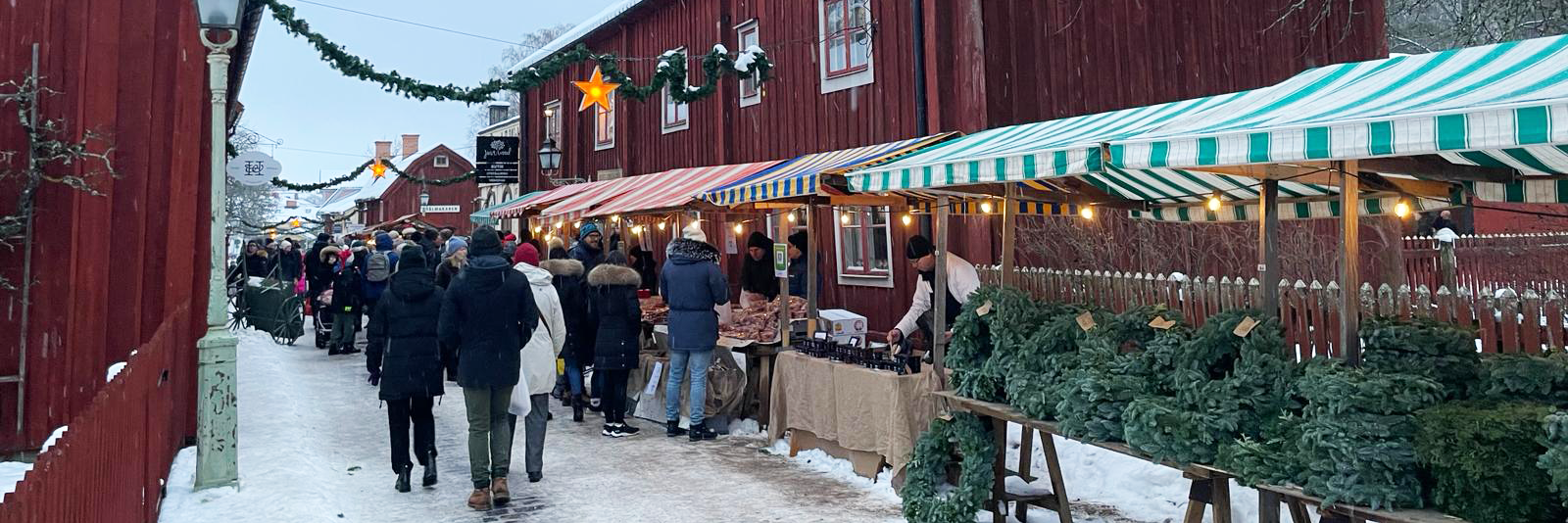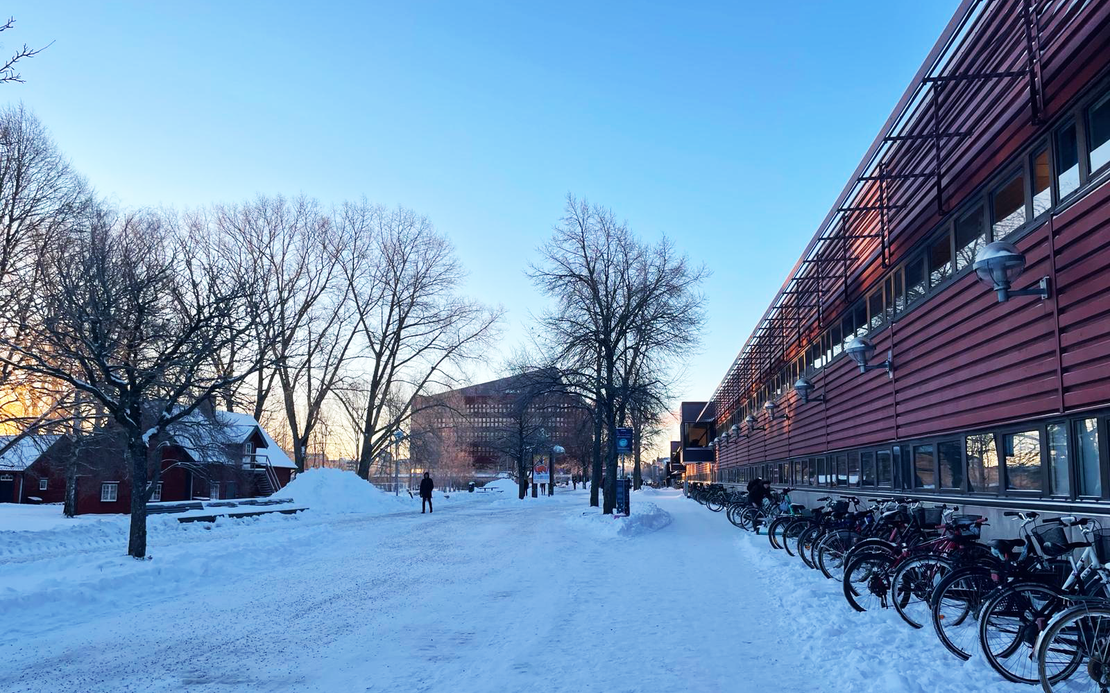
Eliane's love of cold weather and nature has drawn her to the north!
She spent a good 5 months researching for her bachelor's thesis at Linköping University.
Interview with Eliane Tanner
Field of study: BSc Bioanalytics and Cell Biology
Stay abroad: Bachelor's thesis
Host institution: Linköping University
Semester: Autumn 2023
What made you decide, what motivated you to go abroad?
Ever since I started studying, I had the idea of going abroad for a semester. I love experiencing new cultures and places, and living in another country for a while always sounded like something I wanted to try. Writing my thesis in Sweden was therefore the perfect opportunity.
Why did you choose your host institution/country?
I discussed with the International Office which countries were possible. One of my favorite places was Scandinavia. I've always liked the cold weather and nature in the north. As HLS has a partnership with Linköpings Universitet, it was a good fit. I wanted to study something related to cancer research. That's why my supervisor tried to find a lab group with a topic along these lines.
What does a typical day at the host institution look like?
In the morning, I ride my bike to the campus where my lab is located. As I'm writing my doctoral thesis here, I work on my project in the lab and don't attend any regular classes. As a lab group, we often have the very important fika in the morning (this is something like our Z'nüni or Z'vieri in the afternoon). After lunch together, I work on my project again. In the evenings, I often go to yoga classes at the sports center on campus, attend a "Swedish for beginners" course or meet up with friends to cook or play board games.
Tell us about your research and your research findings during your residency.
My lab group's research focuses on a cancer-related protein (Myc) that is an IDP (intrinsically disordered protein). This means that it has no fixed structure and is therefore very difficult to combat. The problem with Myc is that when it is deregulated in an organism, in most cases it causes cancer. Deregulation of Myc is found in over 50% of all cancers, making it a very interesting and important target. Through an interaction with another protein, Myc is stabilized and cannot be efficiently degraded. This inability to degrade Myc is thought to promote cancer proliferation. My group is trying to better understand the interactions with proteins that interact with Myc. By focusing more on protein-protein interactions, it is hoped that we will gain a better understanding of the process and open up new possibilities for the search for new therapeutic targets. My project was mainly about mutating the Myc at specific amino acid positions and producing this new mutated Myc. In a next step, we investigated how the interaction with the other protein has changed and how the mutated Myc works in comparison to the wild-type Myc.
What surprised you the most about your stay abroad?
I was very surprised by the LiU campus and how student life works here. It's very different from home. The campus here is huge and includes many buildings, a fitness center with lots of classes, some small eateries and a house with only student life stuff. In addition to the normal university life, there is a lot going on here (events, courses, student pubs, etc.), which is actually very nice.
And it's very important for the Swedes to have a fika every day. They take it very seriously and I think it's a very nice tradition and a good way to catch up with work colleagues.
What tip would you like to give to future exchange students.
Most international students meet new people through the courses they attend. Since I only worked in the lab and didn't attend any classes, I had to find other ways. I really recommend joining a university student organization or just attending their events. There is something for everyone (hiking groups, sports, art groups, etc). The two biggest international organizations are ESN and ISA, which also organize a lot of events where you can meet new people and experience new things.
For people who need things for their apartment: There are great second-hand stores in Sweden, and also the student organization ISA has a chat where students sell their stuff (e.g. bikes etc.), which is very handy for international students.
Also apply for a Mecenat card, a Swedish student card that gives you many benefits on public transportation and other facilities.
Ab ins Ausland?
Unsere Studierenden profitieren von der internationalen Vernetzung der Hochschule für Life Sciences. Ein Auslandsaufenthalt bei unseren Partnerschulen ist bei Bachelor- wie auch Master-Studierenden sehr begehrt. Nicht nur, um den persönlichen Horizont zu erweitern, sondern auch, um neue soziale und kulturelle Kompetenzen zu erwerben.
Im Rahmen unseres Masterprogramms können ausgewählte Studierende durch ein zusätzliches Semester an einer unserer Partnerschulen, zwei Diplome erhalten. Das Double-Degree Programm ist besonders attraktiv für Masterstudierende, die anschliessend eine Promotion anstreben. Weitere Details zum Double-Degree-Programm finden Sie im hier.



